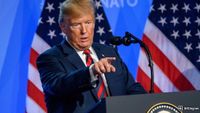The cryptocurrency industry in Taiwan has agreed with the government's plans to regulate cryptocurrency. NFTs are not in the plan.
Taiwan's financial watchdog, Financial Supervisory Commission (FSC), has announced that it will be regulating cryptocurrency.
According to the local news portal United Daily News, FSC chairman Huang Tien-Mu confirmed the move to Taiwan’s lawmakers during a parliamentary hearing about global banking stability.

Did you know?
Want to get smarter & wealthier with crypto?
Subscribe - We publish new crypto explainer videos every week!
Crypto Fees Explained: How Not to Overpay? (Animated)


Huang Tien-Mu stated that the crypto regulatory framework would cover subjects such as investor protection and separation of customer assets from company funds.
FSC chairman emphasized that non-fungible tokens (NFTs) will not be regulated by the financial watchdog. The chairman stated:
Due to the extendability and composability of NFTs, they can represent a broad spectrum of things ranging from commercial products to commodities to securities. Therefore the FSC likely needs more time to develop a proper set of NFT classification guidelines.
Taiwan’s Central News Agency reported that Taiwanese lawmakers plan to appoint the Ministry of Digital Affairs to oversee NFTs.
The official stated that the regulatory body will not ignore the self-regulatory principles underpinning cryptocurrencies. Huang Tien-Mu also said that to create a crypto regulatory framework, FSC will follow the instructions from the Executive Yuan, the Republic of China’s highest administrative body.
Some crypto industry leaders from Taiwan celebrated the news stating that it is the only way the industry can grow.
Taiwan has been reluctant when it comes to cryptocurrency regulations. Up to this point, the country regulated only the assets that fell under the framework of money laundering prevention.
However, the recent turmoil in the crypto industry, especially the fall of FTX, may have motivated the country’s regulatory authority to act swiftly in setting up a regulatory framework for the relatively new assets.






















